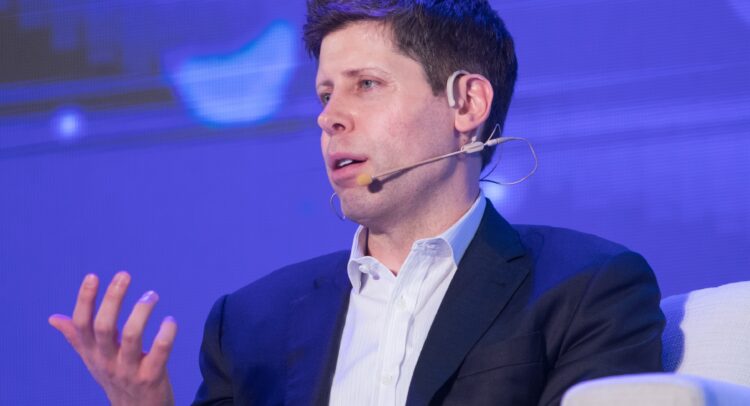Worldcoin’s survival now hinges on overcoming regulatory hurdles and demonstrating real commitment to user privacy.

Market News
Sam Altman’s Worldcoin Faces Global Backlash Amid Privacy Concerns
Story Highlights
Sam Altman’s ambitious Worldcoin project, designed to scan irises for a unique digital ID and distribute cryptocurrency, is stumbling through a global storm of scrutiny and legal hurdles. The initiative aims to provide a universal basic income using Worldcoin’s cryptocurrency, WLD, and is backed by a technology that verifies “humanness” by scanning irises with a device known as the Orb. However, Altman’s vision is now clouded by a series of controversies and regulatory roadblocks.
Don't Miss our Black Friday Offers:
- Unlock your investing potential with TipRanks Premium - Now At 40% OFF!
- Make smarter investments with weekly expert stock picks from the Smart Investor Newsletter
Worldcoin Under Fire from Regulators
Since its launch last year, Worldcoin has encountered considerable resistance from various governments. It has faced raids in Hong Kong, bans in Spain, and fines in Argentina. The European Union is also gearing up to make a decision on Worldcoin’s ability to operate within its borders. As reported by Bloomberg, the scrutiny is largely due to concerns about how Worldcoin manages and protects personal data.
In Kenya, the project was hit with a criminal investigation after allegations emerged about improper data collection. Local authorities questioned the validity of user consent and the handling of biometric information. Kenyan legislator Gitonga Mukunji criticized the project, remarking, “These companies pay our population peanuts, and the technology then makes them rich,” as noted by The Guardian.
Worldcoin’s Privacy Issues and Data Security Concerns
Worldcoin’s technology, which utilizes iris scans to create unique digital identities, was designed to enhance privacy. Yet, privacy advocates worry about the creation of a global biometric database with minimal oversight. Damien Kieran, the project’s chief privacy officer, defended Worldcoin’s approach by stating, “We don’t collect data to harvest it. We don’t sell data,” according to Bloomberg. In response to criticism, Worldcoin has suspended its image-sharing feature and is implementing new measures such as encrypting and segmenting iris codes to improve data protection, as noted by Forbes.
Worldcoin’s Financial Future and Market Sentiment
Despite the regulatory challenges, Worldcoin has secured substantial backing, raising $240 million from investors like Andreessen Horowitz and Khosla Ventures. The project’s future hinges on the stability of the WLD cryptocurrency. A drop in WLD’s value could undermine incentives for new users, as noted by PitchBook.
In an interesting twist, a Kenyan user used his WLD tokens to buy a goat, which he named Sam after the project’s founder. This anecdote reflects the diverse reactions to Worldcoin, blending both optimism and skepticism about its future.
As Worldcoin steers through these rough waters, its future will hinge on how well it can tackle regulatory issues and show it’s genuinely committed to safeguarding user privacy.


















